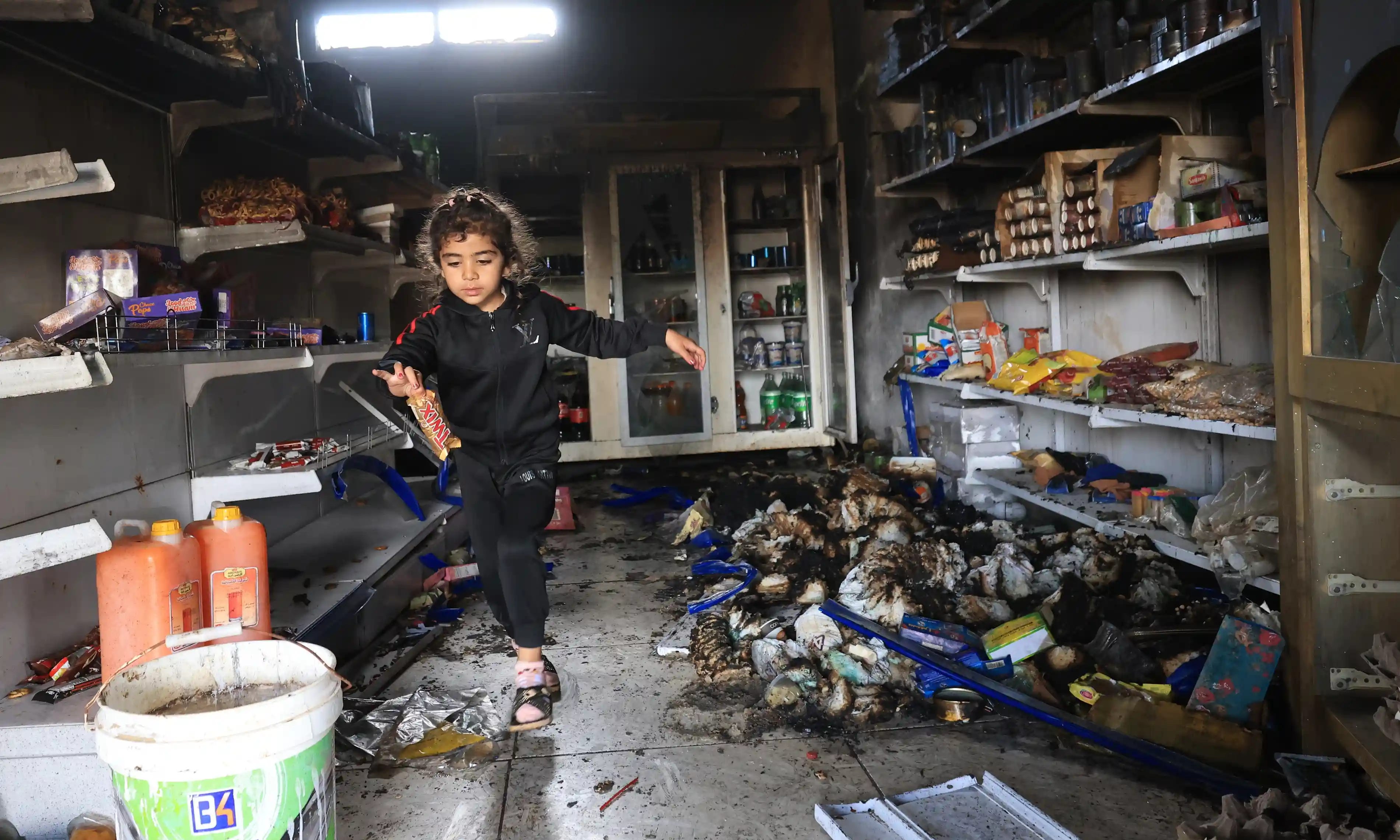
“On Friday, April 26, at 13:00, a group of settlers invaded the southern part of Madama village [south of Nablus] and departed shortly afterward,” the Palestine Liberation Organization’s Negotiations Affairs Department reports on its website. It also reports that on the same day, at 11:45 A.M., “a group of settlers entered the farming lands of civilians in the Al-Khalayel area in Al-Mughayyir village [northeast of Ramallah] and shot at several farmers. At 14:55, a group of settlers invaded the Ein al-Hilwa area in the northern Jordan Valley and destroyed a residential tent belonging to the D. family with the objective of expelling them from the area.”
At an unknown hour, “a group of settlers entered the lands of Kisan village [southeast of Bethlehem] and tried to steal a water tank attached to a tractor and farming equipment, but people managed to stop the group and prevent it from seizing their property.” Also on that day, at an unknown hour, a group of settlers invaded the Ein al-Hawaya area west of Hussan village, located west of Bethlehem, and held a prayer service there. Another group of settlers invaded Carmel village east of Yatta and held prayers in the village’s archaeological area.
According to the site, on 25 April “at 13:05, a group of settlers stole an electrical transformer attached to a solar energy production system belonging to a family in the Khirbet a-Dir area in the northern Jordan Valley, and also ripped up and destroyed residential tents and an electrical generator belonging to another family. At 13:25, a group of settlers erected several tents in the Al-Khalayel area on lands south of Al-Mughayyir, in an attempt to erect a new illegal outpost. And at 13:45, a group of settlers stood on the bypass road near the Yitzhar settlement and threw rocks at cars.
“At 14:00, a group of extremist settlers led by the extremist minister Itamar Ben-Gvir, under the protection of the occupation forces, visited Othniel’s Tomb on Bir a-Saba’ Street in Hebron [in the section under Palestinian control]. In the afternoon, a group of settlers confronted a family that was farming its land in Jawrat a-Sham’a village southeast of Bethlehem and prevented it from continuing to work there. At 16:50, a group of settlers set fire to crops belonging to residents of the A-Diraat area east of Yatta.”
The Negotiations Affairs Department, which has nothing else to do anyway, publishes a daily report on the occupation-related events of the previous day, listed according to different categories, including “settler attacks.” Other categories include people killed and wounded by soldiers, military raids, arrests, roadblocks and delays at checkpoints, and vandalized property. This concise, dryly worded reporting, which has been going on since 2001, provides an idea for anyone interested of the intensity with which life is suffocated, minute by minute, under the Israeli boot, in what was supposed to have been the Palestinian state—i.e., in the West Bank, including East Jerusalem, and in Gaza.
Since 7 October, the number of Palestinians killed and wounded has soared, as has the numbers of raids and arrests. The number of settler attacks is steadily increasing, compared to their pace before the war. One hundred and eight attacks were recorded in January, 145 in February and 141 in March.
Still, the department is not able to track every attack. On 26 April, for example, a WhatsApp group called “Documentation of settler attacks” reported that three hilltop youth were cutting a water pipeline used for sheep in Ein Samiya east of Al-Mughayyir. Another report, received on Thursday from Karawat Bani Hassan village in the Salfit district, informed about “colonialists who uprooted and stole about 70 young olive, grape, fig and almond trees that were about three years old.”
There is no way of knowing how many such relatively “light” assaults and invasions occurred in places where Palestinians have given up on reporting them, or fled due to the pressure of the orchestrated violence. These are routine occurrences of self-confident Jewish supremacists who sow fear and helplessness among the victims of their assaults and cause substantial economic damage. At any moment, a group of settlers could intensify its assault on this or that village, following a decision at the local or regional command level, in preparation for taking over another chunk of agricultural land that the army will close off to Palestinians “in order to prevent friction.”
At any given moment, hundreds of thousands of Palestinian villagers are completely exposed to unbridled aggression, often perpetrated by Jews in religious garb, armed with rifles or handguns, clubs or rocks or whatever is needed for arson. All this happens with the government’s protection and encouragement, under the army’s protection, and in the face of indifference by the majority of Israelis.
It’s not surprising that the children of those coming under attack want to leave their villages, and that their parents are thinking about emigrating abroad. The “Lord’s emissaries” in this “holy Jewish war” aren’t stupid. They’re confident that the constant harassment they apply will yield the desired result: either “voluntary emigration” or “punitive” mass expulsion. Or both.



